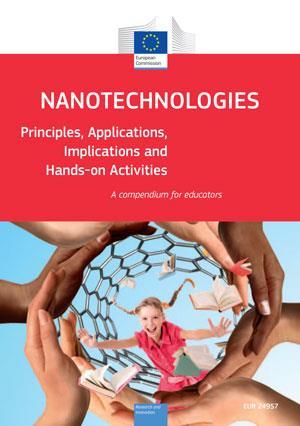Teaching the tiny
Nanotechnologies: principles, applications, implications and hands-on activities
Luisa Filipponi and Duncan Sutherland
European Commission
2013 | 406pp | €10.50 (PB) or free (pdf)
ISBN 9789279214370

For many teachers, nanotechnology is something they may not have formally studied, yet it increasingly appears in the 14–18 science curricula. Nanotechnologies therefore provides a useful and timely guide for teachers about this important area of science. It has been compiled to give teachers and educators of pupils in the 14–18 age groups an understandable and attractive compendium of the fundamental concepts of nanosciences and their major technological uses.
The book covers in separate sections both the fundamental principles behind nanoscience and the many uses of nanotechnologies in the medical, environmental, energy and ICT sectors. It does so in a clear and concise manner with many attractive diagrams. Although I was familiar with many of the ideas, through my rather piecemeal accumulation of information on nanoscience from magazines and the internet, I found the book filled in holes in my knowledge and helped me make stronger connections between ideas. I will now give answers of greater depth when pupils ask those probing questions. I think the book would also be accessible to A-level students and interested pupils could be directed to it for independent study. The book is freely available as a pdf so this makes it easy to share with pupils.
Throughout the text the book makes some suggestions for pupil activities. These mostly focus on debates about the ethical and environmental implications of nanotechnologies. These seem useful and well-focused at the 14–16 age group but I would have liked to see some activities that probed scientific understanding of the concepts. The book also details four experiments for pupils to conduct, all of which are completely new to me. They are explained in detail and are well thought out. The experiments on the colours of colloidal gold and on liquid crystals look particularly interesting. The cost of the chemicals, however, may prove prohibitive for some schools.
Overall, I can thoroughly recommend this book for any teacher or student looking to deepen their knowledge and understanding of this subject of ever increasing importance.
Download or purchase Nanotechnologiesfrom the EC website.









No comments yet